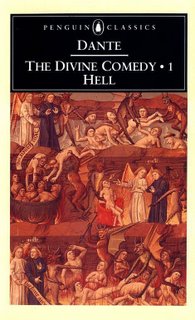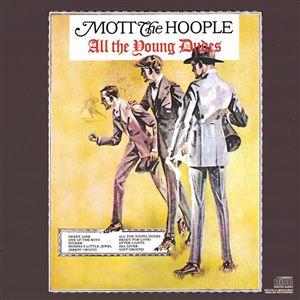North Americans are prone to some misunderstandings when reading British fiction due to a lack of awareness of the almost universal effects of the class system there. This, you will discover, is an essential -- arguably, by far the most significant -- aspect of the cultural background to British pre-1945 fiction.
Let me elaborate here. First, a former student's working class father (clearly a highly admirable man) earned Cambridge in the nineteen fifties, by which time the class boundaries were feeling the blows of many engines: the two World Wars for instance. And second, at a larger remove, remember that Britain has a system of
class not
caste: in other words, there had always been some opportunity for mobility - in both directions. Profligate aristocrats had for centuries dropped their posterity well into the middle class. Successful business acumen brought some middle (and even some originally lower) class men into the aristocracy
via a knighthood. Consider Sir William Lucas in
Pride and Prejudice. And elevation by marriage was also an avenue: the stage was an effective platform in more than one sense; and "let a man be ordained to the clergy and he can marry as high as he likes" is a line from
Born in Exile by George Gissing.
But beside all this
, mobility is only one aspect of the class system: the levels are enduringly divided by the behavior and attitudes that the members of each level share. Mr. Lucas could rise to status of gentlemen, but he could not prevent Mr. Bingley's sisters from sneering at him behind his back. Indeed, only Elizabeth Bennett's omnipotent womanhood could make Mr. Darcy repent (with obsequy) of his disdain for her Cheapside relations, the Gardners.
My point about North America is that culture is uniform to a degree not experienced in England. Members of the Canadian Senate watch NHL games in undershirts while drinking beer - as does a longshoreman in Surrey whose choice of beer is quite likely to be Stella Artois. During a past American Presidential election, John Kerry -- a north-eastern aristocrat -- rode a mountain bike, wore a trendy yellow Lance Armstrong bracelet and had rap on his iPod. Bank balances allow for important -- even critical -- differences in health and opportunity among North Americans. And ethnic diversity provides reasons to celebrate significant difference. But for all that, a remarkable similarity of taste and value makes "class" a problematic term to apply. The "Red State/Blue State" divide, for instance, is a geographic and regional divide, not a class divide. And the rural/urban divide in Canada does not map facilely to income.
Less so under New-Labour Britain (which is just what is argued as a master hypothesis by this course,) but still very much alive, is exactly a class distinction where North America has a conformity. It was the fact that
Diana: Princess of Wales, behaved like
Anna Nicole Smith that caused Her Unstable Highness to be ostracised by the British aristocracy. And, contrariwise, the fox-hunting passion of aristocrats --
nouveau and
old alike -- produces derision against "toffs" from
the man on Wigan pier.
Speaking of George Orwell, here is one of his many characteristically pithy insights into the British class differences in terms of
attitude rather than mobility.
And again, take the working-class attitude towards ‘education’. How different it is from ours, and how immensely sounder! Working people often have a vague reverence for learning in others, but where ‘education’ touches their own lives they see through it and reject it by a healthy instinct. The time was when I used to lament over quite imaginary pictures of lads of fourteen dragged protesting from their lessons and set to work at dismal jobs. It seemed to me dreadful that the doom of a ‘job’ should descend upon anyone at fourteen. Of course I know now that there is not one working-class boy in a thousand who does not pine for the day when he will leave school. He wants to be doing real work, not wasting his time on ridiculous rubbish like history and geography. To the working class, the notion of staying at school till you are nearly grown-up seems merely contemptible and unmanly. The idea of a great big boy of eighteen, who ought to be bringing a pound a week home to his parents, going to school in a ridiculous uniform and even being caned for not doing his lessons! Just fancy a working-class boy of eighteen allowing himself to be caned! He is a man when the other is still a baby. Ernest Pontifex, in Samuel Butler’s Way of All Flesh, after he had had a few glimpses of real life, looked back on his public school and university education and found it a ‘sickly, debilitating debauch’. There is much in middle-class life that looks sickly and debilitating when you see it from a working-class angle.
Note how this corrects the mistaken North American misunderstanding that the proletariat pines in frustrated envy for the values of the middle and upper middle classes. As an exemplary aside, I often observe students and professoriat alike stating that some group or another of fellow citizen are "deprived" of a university education: making, that is, university attendance a quality of universal worth. Too flagrantly pretentious and distastefully preening, I believe, to insist that one's own accidental preference or aptitude must be the
sine qua non of social worth.
The class system (aristocratic, bourgeois, and lower classes) is, as mentioned, the vestige of the feudal system of noble, yeoman, serf. And thus it is a system based on
wealth: finance correlates with class, but does not determine it. Indeed, to talk of wealth as class marker is to commit the solecism of elevating the value of
one class -- the bourgeois -- to supremacy. North Americans do use "upper," "middle" and "lower" as synonyms for "Rich, average, and poor," but that is because North America simply
is a bourgeois continent. Moreover, making "wealth" equal to "money" is more of the triumph of the bourgeoisie; since turning worth into capital was the strategy of the Whigs .... and the means by which they effected their conquest.
Here is George Gissing to this end -- and bear in mind as you read this passage from the "Summer" section of
The Private Papers of Henry Ryecroft that Gissing is widely touted as being the pre-eminent novelist of the Reformers:
For a nation of this temper, the movement towards democracy is fraught with peculiar dangers. Profoundly aristocratic in his sympathies, the Englishman has always seen in the patrician class not merely a social, but a moral, superiority; the man of blue blood was to him a living representative of those potencies and virtues which made his ideal of the worthy life. Very significant is the cordial alliance from old time between nobles and people; free, proud homage on one side answering to gallant championship on the other; both classes working together in the cause of liberty. However great the sacrifices of the common folk for the maintenance of aristocratic power and splendour, they were gladly made; this was the Englishman's religion, his inborn pietas; in the depths of the dullest soul moved a perception of the ethic meaning attached to lordship. Your Lord was the privileged being endowed by descent with generous instincts, and possessed of means to show them forth in act. A poor noble was a contradiction in terms; if such a person existed, he could only be spoken of with wondering sadness, as though he were the victim of some freak of nature. The Lord was Honourable, Right Honourable; his acts, his words virtually constituted the code of honour whereby the nation lived.
In a new world beyond the ocean there grew up a new race, a scion of England, which shaped its life without regard to the principle of hereditary lordship; and in course of time this triumphant republic began to shake the ideals of the mother land. Its civilization, spite of superficial resemblances, is not English; let him who will think it superior; all one cares to say is that it has already shown in a broad picture the natural tendencies of English blood when emancipated from the old cult. Easy to understand that some there are who see nothing but evil in the influence of that vast commonwealth. If it has done us good, assuredly the fact is not yet demonstrable. In old England, democracy is a thing so alien to our traditions and rooted sentiment that the line of its progress seems hitherto a mere track of ruin. In the very word is something from which we shrink; it seems to signify nothing less than a national apostasy, a denial of the faith in which we won our glory. The democratic Englishman is, by the laws of his own nature, in parlous case; he has lost the ideal by which he guided his rude, prodigal, domineering instincts; in place of the Right Honourable, born to noble things, he has set up the mere plebs, born, more likely than not, for all manner of baseness. And, amid all his show of loud self-confidence, the man is haunted with misgiving.
The destruction of the class system in England is, then, the destruction of the aristocracy and the lower class by the bourgeois: the former they tore down to their level from resentment & envy; the latter they pulled up by sheer condescension.
 One certain literary source to which Madox is alluding with the multi-layered iterations of the Tea Tray image in Parade's End is this poem from Alice's Adventures in Wonderland by Lewis Carroll:
One certain literary source to which Madox is alluding with the multi-layered iterations of the Tea Tray image in Parade's End is this poem from Alice's Adventures in Wonderland by Lewis Carroll:







 From classfellow Brett J.,
From classfellow Brett J.,  A student of mine once sent me this intriguing email engaging a statement that Freud dropped regards his phsychoanalytical theories & the Irish race. I like it very well (save the Wikipedia part.):
A student of mine once sent me this intriguing email engaging a statement that Freud dropped regards his phsychoanalytical theories & the Irish race. I like it very well (save the Wikipedia part.):


 The poems from our First World War anthology are, as I promise, glorious--and appreciated by many types of reader. Our class film Regeneration (& the novel which it dramatises) suggests the power that the poets still have on artistic imagination. Let us read the Rupert Brook poem 1914: Safety (29); the Owen poem Dulce et Decorum Est (141); and Sassoon's Redeemer (62) or the other mentioned in Wednesday class.
The poems from our First World War anthology are, as I promise, glorious--and appreciated by many types of reader. Our class film Regeneration (& the novel which it dramatises) suggests the power that the poets still have on artistic imagination. Let us read the Rupert Brook poem 1914: Safety (29); the Owen poem Dulce et Decorum Est (141); and Sassoon's Redeemer (62) or the other mentioned in Wednesday class.

